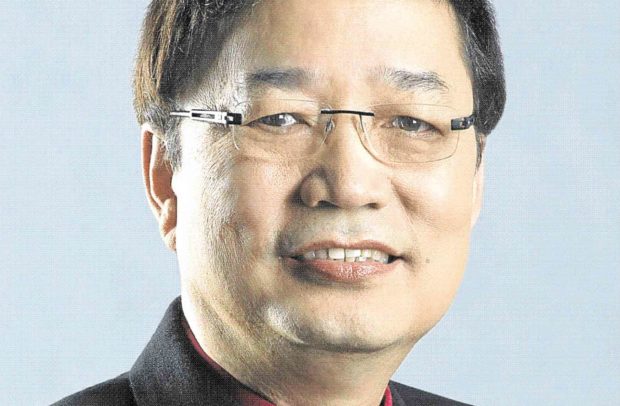Common franchising mistakes revealed
Butz Bartolome is the chair of GMB Franchise Developers Inc., which has been into franchise consulting for over 25 years.
He was also chair of the Association of Filipino Franchisers Inc. in 2014. Here, he talks about the common mistakes in franchising and how to avoid them.
Q: What are the most common mistakes in launching a franchise? How can franchisers avoid these?
A: The most common mistake is launching a franchise for the wrong reasons. While it is true that a franchisor will franchise his business for profit, this is not the reason for being.
When franchisors launch their franchise, it is important that they are committed to the success of the franchisees first and foremost.
Article continues after this advertisementAnother mistake of franchisors is not trusting franchisees. There is a prevalent perception that franchisees will invariably cheat or defraud them. This mentality closes all doors to healthy communication lines with franchisees. Inevitably, the franchise system deteriorates since communication is the key element to the success of any and all franchise initiatives.
Article continues after this advertisementFranchisors are advised to reexamine reasons for franchising and be committed to the success of franchisees.
Q: What are the most common mistakes in choosing a franchisee? How can franchisers avoid these?
A: 1. Numbers game—Franchisors are eager to award as many franchisees as possible. They want to collect as much franchise fees.
From experience and from case studies of franchise systems, numbers game in awarding franchisees is a surefire ticket to failure. Expansion through the franchise route has to be done slowly. Franchisors should realize using other people’s money is a huge responsibility. Some franchisees invest their retirement pay or savings from their overseas work into the franchise.
2. Owner or owners have no time to talk with applicant—Franchisees are to manage the branch similar to or if not exactly how the owners manage to ensure success. If the owners do not have a conversation with applicants, how will they know if they have the attributes that will make their business grow? Owners should also realize that these interviews open the communication lines with their future franchisees. Communication is the key element to the franchise system’s advancement.
3. Basic criteria for acceptance—Franchisors should have a clear definition of the criteria for accepting franchise applicants. It will not just be availability of funds.
We have seen many successful franchisees that had some difficulty raising funds but had the commitment and perseverance for the franchise.
4. Absence of a discovery day—A discovery day where applicants and franchisor meet is step one in the application process. Both the franchisor and applicant will have an opportunity to meet each other personally. Since franchising is a personal relationship more than a contractual relationship, both parties can conclude if they can be partners for five years or for the term of the contract. We advise people that if in the discovery day, one party feels he/she will be unable to work with the other, then stop the process.
5. Franchisors do not allow applicants to talk to current franchisees—It is best that applicants talk to existing franchisees about their experiences. The basic objection of franchisors is the fact that some franchisees can discuss their negative experiences but we counter by saying, no franchise system is perfect. There will always be positive and negative feedback. It is better for applicants to hear both sides so they can make a more informed decision.
Q: What are the most common mistakes in choosing a franchise? How can these be avoided by franchisees?
A: Choosing a franchise because a friend has a franchise or they see a long queue in the stores or I will just choose a food franchise as everybody eats or this is a hot and cheap franchise.
These are all the wrong reasons for choosing a franchise. When choosing a franchise, it is important to know what franchise you like and a franchise that you can be proud of.
One test will be this question—how will you feel being in the store and serving or talking to customers? If you are okay with that then go for it.
This will also ensure sustained operations of your franchise.
Q: What are the most common mistakes in operating a franchise? How can both franchisers and franchisees avoid these?
A: The belief that since it is a franchise, it can be successful on autopilot.
The barometer of the success of franchised branches is the level of hands-on management provided by franchisees. The branch will always need the presence of an owner regardless of years in the franchise system.
Customers are usually drawn to branches where there is an owner on the floor.
I am sure you have experienced how product quality of franchised branches is excellent at the initial stage of operations only to deteriorate after six months or a year.
Another mistake is failure of franchisors to provide long term support and assistance to franchisees.
Part of the franchisor’s responsibility in the franchise agreement is to assist the franchisee in his operations until the end of the term.
In franchising, both franchisors and franchisees are to recognize that the advancement of the franchise system is a joint obligation.
The beauty of franchising is the fact that benefits are mutually shared and while actions are done separately by both franchisor and franchisee, its effect is on both. Giving these franchise principles importance enables the system to survive for years and even for generations. —CONTRIBUTED
